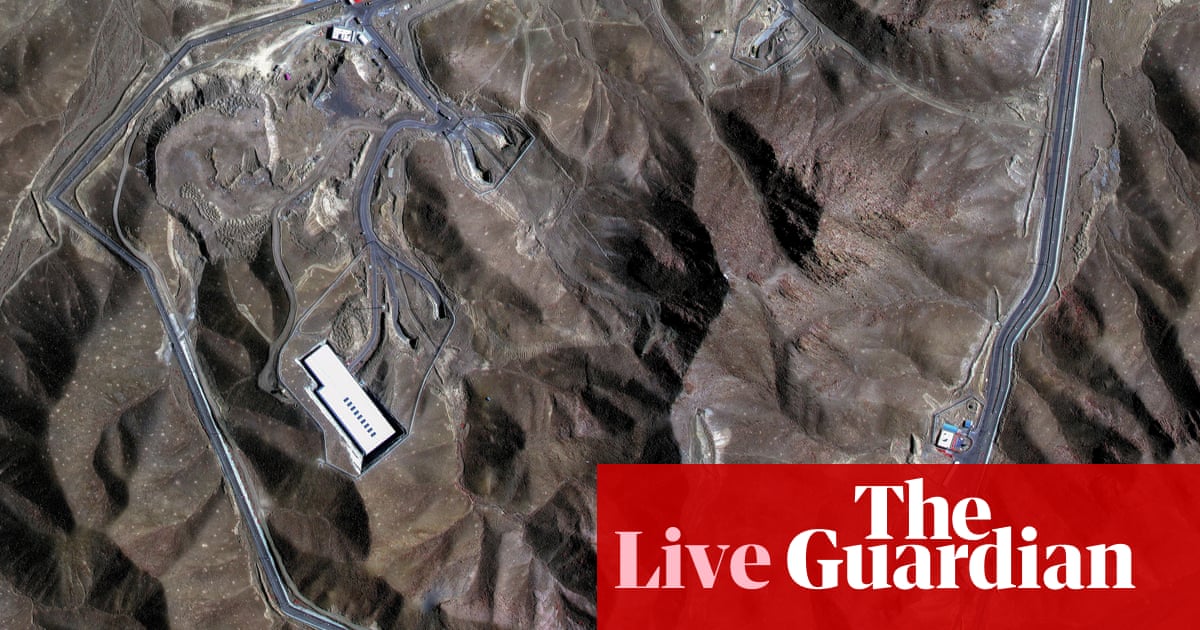Israel Targets Iran’s Fordow Nuclear Site
Recent reports from Iranian media indicate that Israel has conducted a new strike against Iran’s underground Fordow nuclear facility, located south of Tehran. The Tasnim news agency, citing the Qom province’s crisis management authority, labeled this event as another act of aggression, underscoring the escalating tension between the two nations.
Context of the Conflict
This incident is part of a broader geopolitical struggle in the Middle East, where Israel has undertaken military actions aimed at curtailing Iran’s nuclear ambitions. The Fordow site, established within a mountain to shield its operations, has been a focal point of concern for many countries, particularly Israel and the United States, due to its potential for uranium enrichment.
Key Developments
-
Evacuation Orders: In a dramatic escalation, the Israeli military issued evacuation warnings to Tehran residents, urging them to stay away from military and weapons production sites. Such messages underline the potentially grave implications of continued hostilities.
-
Strikes and Retaliations: As the conflict heats up, Iranian officials have confirmed the arrest of a European citizen accused of espionage for Israel. This development points to the intricate and often secretive operations that underpin this geopolitical chess game.
- International Reactions: The global community has reacted with concern. The UK government is advising its nationals in Qatar to shelter in place, illustrating the pervading anxiety surrounding potential retaliation from Iran.
Oil Trade and Security
The Strait of Hormuz, a crucial maritime route for oil transport, remains a central point of concern. Despite recent US airstrikes on Iranian nuclear facilities, traffic through the strait appears largely unaffected. However, elevated tensions are causing shipping warnings, as Iran has threatened to close this vital waterway, which could have dire consequences for global oil supplies.
Military Implications and Strategies
Iran’s capabilities to retaliate are a topic of heated debate. Experts suggest that in case of an armed response, Iran could opt for sea mining within the Strait of Hormuz, a strategy that poses significant risks to international shipping lanes. This tactic would likely provoke a strong military response from the US and its allies, escalating the conflict further.
Humanitarian Concerns and Civilian Impact
As military strikes intensify, humanitarian issues are emerging. Reports about Israeli air attacks in Gaza and their implications are drawing international attention, complicating the narrative surrounding the Israel-Iran conflict. Voices from humanitarian organizations are rising, emphasizing the need for protection for civilians caught in the crossfire.
Diplomatic Channels and Future Outlook
With ongoing tensions, diplomatic efforts remain crucial. The White House hinted at a willingness for negotiations regarding Iran’s nuclear program, adding a layer of complexity to military actions. Meanwhile, commentary from European leaders underscores a divide in perspectives on the US response to Iranian threats.
Conclusion
As Israel continues to engage in military operations against Iran, the prospect of understanding the broader implications—ranging from humanitarian impacts to oil trade dynamics—remains critical. With each event in this high-stakes conflict, the global community watches closely, aware that the repercussions extend far beyond the immediate battlefield.


